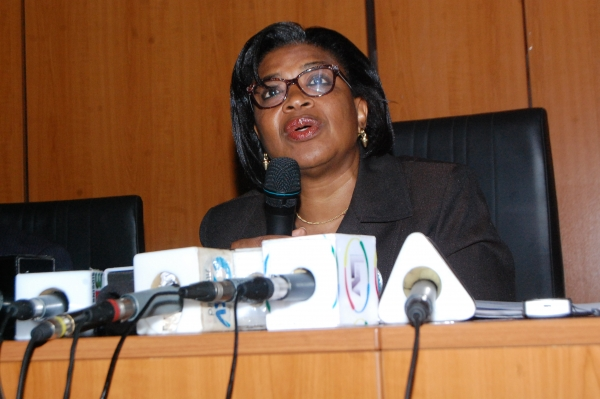Juliet Akoje in Abuja.
Mrs. Patience Oniha, Director-General of the Debt Management Office (DMO), confirmed yesterday that Nigeria’s total debt profile as of March 2022 was N41.60 trillion.
Oniha stated this during her appearance yesterday at the House of Representatives Committee on Finance’s ongoing engagement on the 2023 – 2025 Medium Term Expenditure Framework (MTEF) and Fiscal Policy Paper. She attributed Nigeria’s high debt profile to revenue shortfalls and the annual budget deficit approved by the National Assembly. According to her, this increased the country’s debt stock.
She revealed that, “as at December 2020, the debt stock of Nigeria and that includes the federal, state governments and the Federal Capital Territory was N32.92 trillion. By December 2021, it was N39.556 trillion. As at March of this year, we published quarterly, it was N41.6 trillion. On the average, the federal government is owing about 85 percent of the total debt.
“We have been running deficit budget for many years and each time you approve a budget with a deficit, by the time we raise money, because when you approve it is giving us a mandate, authority to borrow, it will reflect in the debt stock, so the debt stock will increase. Also note that states are also borrowing. So we add their own. They also have laws governing their borrowings and as debt stock increases so does debt service.
“Until the issues of personnel, overhead and capital expenditure are properly addressed in the budget, borrowing would not stop.”
Speaking further, she said, “a World Bank report showed that in terms of debt-to-GDP ratio, Nigeria is low but for debt service-to-revenue ratio, we are very high. So, if you look at tax-to-GDP ratio of these other countries, they are in multiples of Nigeria.”
According to her, the World Bank survey report of about 197 countries revealed that Nigeria was 195, meaning that the country was only able to beat two countries and that was Yemen and Afghanistan, “and I don’t think we want to be at those places.”
“When the MTEF for 2021 to 2023 was being prepared, it is to say, let’s begin to look at revenues because as debt is growing, debt service is increasing. So, the language we used is for debt to be sustainable in the medium term.
“Sustainable means you can service your debt without difficulty, without it consuming all your revenues because you have very little for other projects. You must look at revenues very closely and I think the discussions you have had with the Customs is one part of it.
“There are many other revenue generating agencies. So, we must increasingly begin to look out our revenue for funding our activities as opposed to deficit.
“We talked about N11 trillion deficit and borrowing for 2023, how much is the revenue there? When we looked at the first tranche that was N10 trillion for full year of subsidy and N9 trillion for subsidy next year and the size of the borrowing was 62 per cent of the budget. That’s high.
Read Also: 2023: Presidential candidates to pay N10m for billboards, posters in Kogi
“The responsibilities, I think, are on both sides. Query the various expenditure lines and see what it is we can handle. So, if the deficit is lower, the borrowing will be lower and that’s how to grow on a slower pace,” she added.
The Deputy Chairman of the Committee, Hon. Saidu Abdullahi who presided over the session, in his remarks said, “the country was on a good pedestal to keep borrowing. The need for borrowing will always be there. It doesn’t matter how much we make; the country must borrow.
“What we should be interested in is the sustainability of what we are borrowing and from what she has said, the country is on a good pedestal in terms of managing its borrowing.”


















